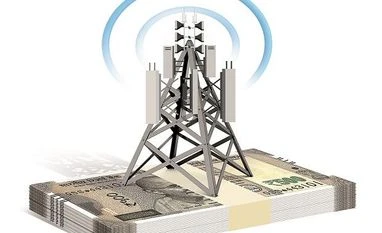India’s mobile operators are back on the growth path and their combined net sales were up 11.9 per cent in FY21. With this, the industry’s total revenues are up 33.6 per cent from FY18. However, the telecom industry is yet to fully recover from the disruption caused by the entry of Reliance Jio in 2016. Its combined revenues last fiscal were still 16.5 per cent lower than its peak revenues in FY16.
Existing telecom operators such as Bharti Airtel, Reliance Jio, Vodafone Idea, and BSNL reported a combined net sales of Rs 1.87 trillion in FY21 against peak revenues of Rs 2.24 trillion during the financial year ended March 2016.
In fact, revenues in FY21 were just a notch above that of FY13 industry revenue of Rs 1.83 trillion. There were nine mobile operators in India that year. This has now come down to five, including the government-owned Bharat Sanchar Nigam Limited (BSNL) and Mahanagar Telephone Nigam Limited (MTNL). Several operators shut shop in the last five years, including Reliance Communications, Tata Teleservices, Aircel, Telenor India, Loop Mobile, and Vodafone India and Idea Cellular merged to become Vodafone Idea.
In effect, while Reliance Jio ate into the business of most incumbents, so far it has failed to fully replace the loss in industry revenue after it launched a price war in 2016. Reliance Jio reported net sales of around Rs 70,000 crore in FY21, up nearly two and half times from its first year net sales of Rs 20,000 crore in FY17. In comparison, the combined net sales of the industry contracted by Rs 81,000 crore between FY16 and FY18.
The capex by Reliance Jio, however, compensated for the capital destruction of the now-defunct operators. The industry's assets are less productive now compared to five years ago.
The industry’s predicament in the last five years is best captured by the decline of Vodafone India and Idea Cellular, which merged to become Vodafone Idea in 2018.
At their peak, the erstwhile Vodafone India and Idea Cellular had reported combined net sales of nearly Rs 87,000 crore in FY15. In contrast, the merged entity reported annualised revenues of Rs 42,000 crore in FY21.
Similarly, BSNL’s net sales are down 40 per cent in the last five years — from Rs 28,400 crore in FY16 to an estimated Rs 17,000 crore in FY21, based on its results for the first half of FY21.
Bharti Airtel, the operator least impacted by the entry of Reliance Jio, has also failed to grow. Its India mobile division notched up revenues of Rs 55,600 crore in FY21, which were two per cent lower than its peak revenues in FY17.
Revenue contraction has increased the financial burden on operators as the industry’s fixed costs did not decline during the period. The telcos’ combined asset base went up by 8 per cent since FY16. This has created a huge gap between companies’ revenues from operations and fixed costs such as interest and depreciation. This is especially true of financially and operationally weak companies such as Vodafone Idea and BSNL, as the bulk of their capex in the last 5-6 years has been funded through debt due to the lack of internal accruals.
For example, Vodafone Idea’s asset base has tripled since FY16 while its interest cost rose 10 times — from Rs 1800 crore in FY16 to around Rs 18000 crore in FY21. In contrast, the company’s revenues were up by just 17 per cent during the period.
Similarly, BSNL’s interest cost has more than trebled in the last five years — from Rs 587 crore in FY16 to an estimated Rs 2550 crore in FY21. This, while the company’s revenues are down by 40 per cent over the same period.
Not surprisingly, Vodafone Idea has been reporting losses for the last five-years while BSNL has been in red since FY10.
As for Bharti Airtel, while revenues have been flat over the last five years, its interest cost has doubled during the period. The company managed to stay strong, thanks to its ability to raise large amounts of fresh capital and its diversified revenue stream. Airtel’s India mobile business accounts for just half of its consolidated revenues, and it has cumulatively raised nearly Rs 65,000 worth of fresh equity in the last five years – a privilege not available to Vodafone Idea due to its low market capitalisation.
Reliance Jio, on the other hand, was always well capitalised and has used the cash flows from its operations to repay most of its debt. It became an almost debt-free company by the end of March this year.
Unlock 30+ premium stories daily hand-picked by our editors, across devices on browser and app.
Pick your 5 favourite companies, get a daily email with all news updates on them.
Full access to our intuitive epaper - clip, save, share articles from any device; newspaper archives from 2006.
Preferential invites to Business Standard events.
Curated newsletters on markets, personal finance, policy & politics, start-ups, technology, and more.
)